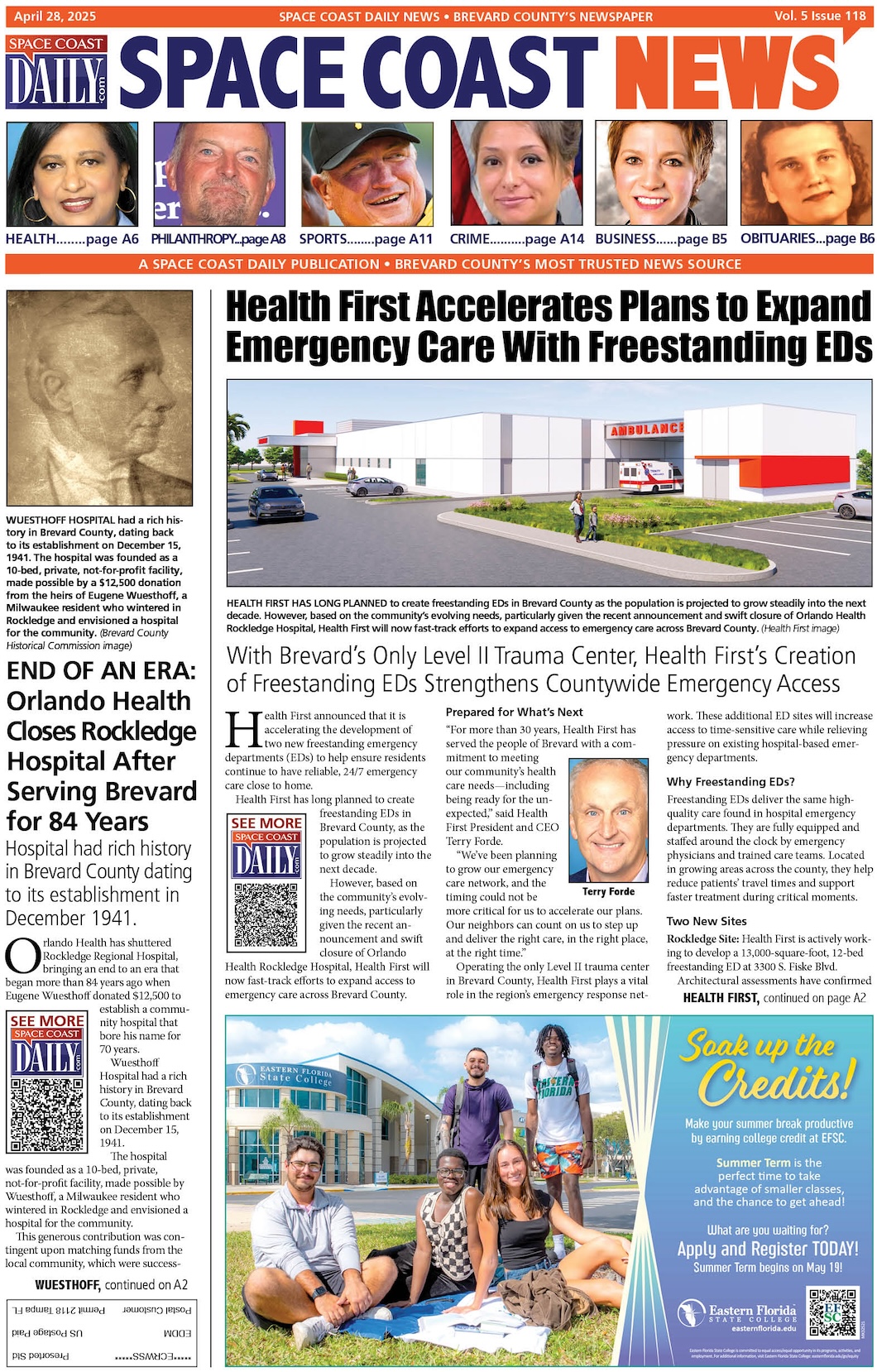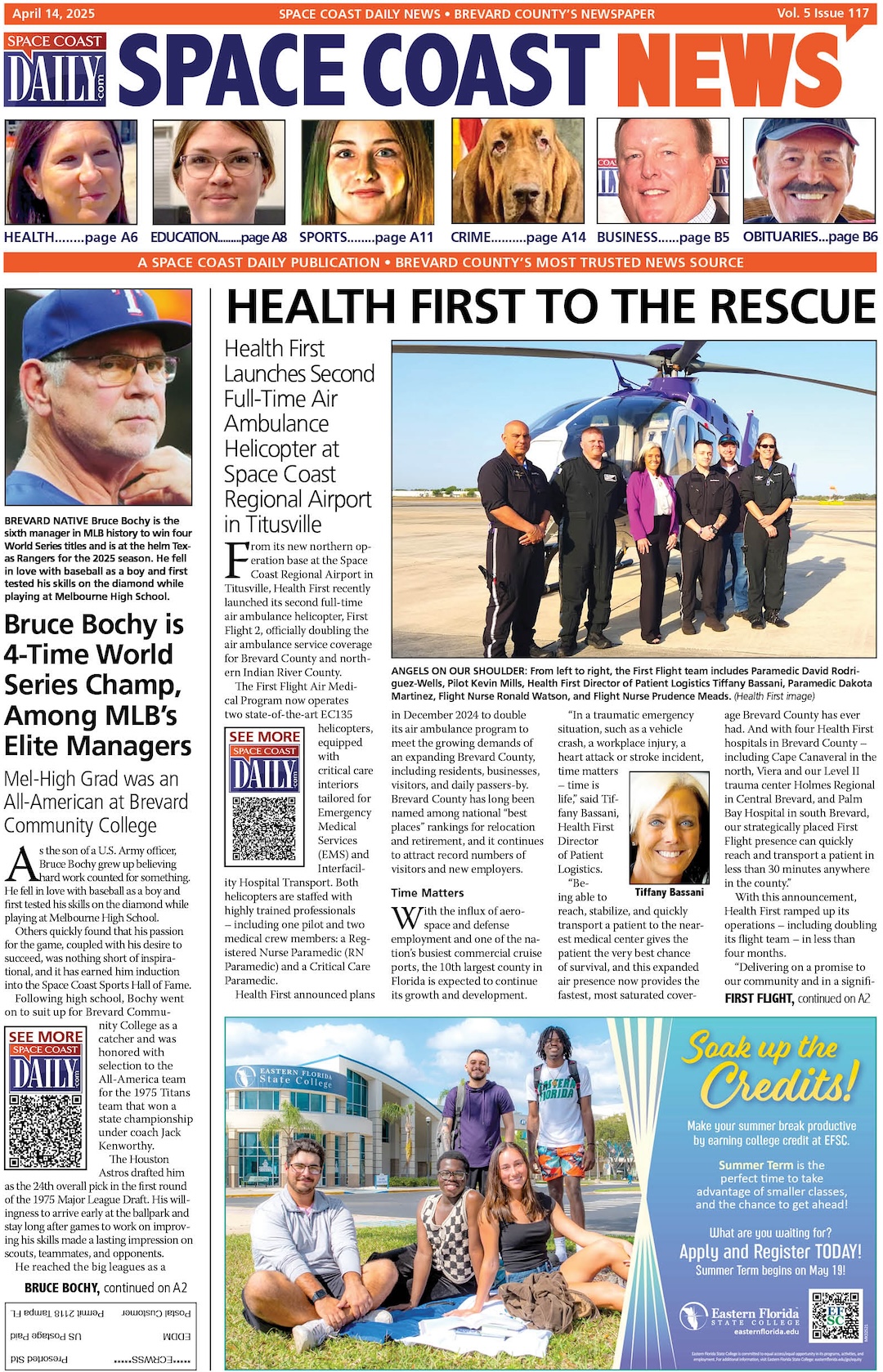Is Florida Suffering from an Addiction Crisis?
By Space Coast Daily // September 30, 2024

The Sunshine State’s growing addiction crisis over recent years has left devastating effects on its population. Florida has seen a widespread sharp rise Florida has seen a sharp rise in drug overdoses, impacting its population 22.24 million people. Its seaside communities have become hubs for smuggling drugs into the U.S., further putting its population at risk. The most common drugs used in Florida are opioids, cocaine, heroin, and prescription drugs.
If you have a loved one suffering from addiction, there are plenty of resources available across the state to provide support. The American Addiction Centers (AAC) offers free and confidential guidance. You can also call the Florida Statewide Substance Abuse Hotline at 211. In addition, there are plenty of drug detoxification centers and inpatient treatment centers for addiction, including Behavioral Health Centers.
Drug Overdoses
In 2022, Florida had the highest number of deaths caused by drug overdose out of all states in the U.S. According to the CDC, the state experienced a surge in overdose fatalities, with the vast majority involving opioids, fentanyl, and other powerful drugs. As the numbers continue to climb, this represents a clear indication that Florida is indeed facing an addiction crisis.
The CDC’s data paints a grim picture. Drug poisoning mortality rates in Florida have been on an upward trajectory, driven largely by the availability of synthetic opioids such as fentanyl, which is many times more potent than heroin or prescription opioids. The high risk of accidental overdose with these substances has caused alarm throughout the state, and families across Florida are grappling with the loss of loved ones at alarming rates.
Florida’s status as a major transportation hub for drugs coming into the U.S., combined with high levels of opioid prescriptions historically, has exacerbated the crisis, making it a public health emergency that demands urgent attention.
An Overview of the Opioid Crisis in Florida
The opioid crisis in Florida has been ongoing for many years, but the situation has worsened in recent times due to the increased presence of synthetic opioids like fentanyl. According to the Florida Department of Health’s FL-DOSE Program, opioid-related deaths have spiked significantly, with fentanyl contributing to the majority of these fatalities.
In 2021 alone, nearly 8,000 opioid overdose deaths were reported in the state. With seaside towns becoming gateways of smuggling illicit substances into the U.S., one of the first populations to fall victim to these drugs is Florida.
What Has Been Done?
While the crisis is still ongoing, state and federal authorities have implemented several measures to try to curb the addiction epidemic in Florida. The establishment of a Prescription Drug Monitoring Program, or PDMP, helps monitor and track opioid prescriptions. This database allows healthcare providers to see if a patient is being prescribed opioids from multiple sources, which can reduce “doctor shopping” and overprescription.
In addition, Florida has widely expanded the availability of naloxone (Narcan), a life-saving medication that can reverse opioid overdoses. Law enforcement officers, first responders, and community organizations have been equipped with naloxone, helping to save lives when overdoses occur.
Another way to help combat addiction is through public awareness campaigns. Awareness campaigns have been launched to educate the public about the dangers of opioid use, the risks associated with fentanyl, and the resources available for those struggling with addiction. Programs like FL-DOSE work to provide real-time data and information to aid in combating the crisis.
Despite these efforts, the crisis continues to evolve, and it’s clear that more needs to be done to address the underlying causes and provide better support for those in need.
Resources for Addiction Recovery
For individuals struggling with addiction in Florida, there are numerous resources available to help them on the road to recovery. Local treatment centers offer inpatient, outpatient, and detox programs, depending on the severity of addiction in those who suffer. The Substance Abuse and Mental Health Services Administration also offers a 24/7 helpline at 1-800-662-HELP, which connects individuals to treatment facilities and local support services.
The FL-DOSE Program provides another avenue for access to addiction treatment resources, data on overdose statistics, and information about local support systems for individuals affected by addiction.
Future Solutions
While significant strides have been made in combatting the addiction crisis in Florida, more can and should be done to stem the tide of overdoses and addiction-related deaths. Potential solutions include:
- Increased Access to Treatment: Expanding the availability of affordable and accessible treatment programs, especially for those in rural or underserved areas, is critical
- Mental Health Support: Many individuals with substance use disorders also suffer from underlying mental health issues. Integrating mental health care into addiction treatment has been an effective way for behavioral health centers to combat the addiction epidemic in Florida
- Education and Prevention: Continuing to educate communities, schools, and healthcare providers about the dangers of illicit drugs like fentanyl and opioids while focusing on prevention programs for youth can help to reduce the number of individuals who turn to drugs in the first place.
- Stronger Regulation and Enforcement: Florida could benefit from stricter regulations and oversight of drug distribution and prescribing practices, along with enhanced law enforcement efforts to reduce the influx of synthetic opioids like fentanyl into the state.
The rising rates of overdose deaths are a sobering reminder of the work that still needs to be done to help reduce addiction within the state. Through continued efforts, expanded resources, and a commitment to prevention, Florida can begin to heal from this devastating epidemic.












